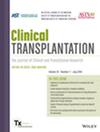Cultural Influences, Considerations, and Challenges for Organ Donation and Liver Transplantation Around the World
Abstract
Introduction
Although liver transplantation (LT) rates have increased globally, the demand for organs still exceeds the supply. This review highlights cultures with significant influences on organ donation and LT.
Methods
We performed a literature search for articles related to cultures, ethnologies, philosophies, policies, religions, socio-economic factors, and other influences affecting organ donation in LT around the world.
Results
There are astonishing similarities between different cultures. In Africa, Asia, and Europe, people often view the postmortem bodies as sacred and believe that their bodies are gifts from “God” or ancestors. To respect the gift of life, to have a chance in reincarnation, or to enjoy life after death, many believe that their bodily sanctity must be preserved. In Asia, Europe, and Latin America, there is a general reluctance to speak about death. Religions also play an important role in people's views on organ donation. Different regions around the world have similar challenges to organ donation, such as misconceptions about organ trafficking, political and economic instability, and a lack of governmental or religious support.
Conclusion
Addressing the complexities of organ donation and LT requires a multifaceted approach. Culturally sensitive education tailored to diverse communities can dispel myths and misconceptions surrounding organ donation. Fostering partnerships between healthcare providers, religious leaders, community organizations, and policymakers can further facilitate open dialogues and promote organ donation as a noble act to save lives.
Social Media
Similar cultures around the world post challenges for organ donation. Organizations should foster partnerships between healthcare providers, politicians, and religious leaders to promote donation.

 求助内容:
求助内容: 应助结果提醒方式:
应助结果提醒方式:


